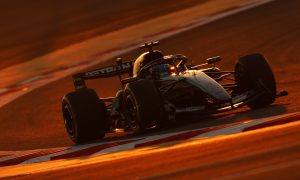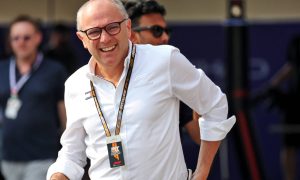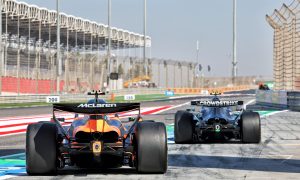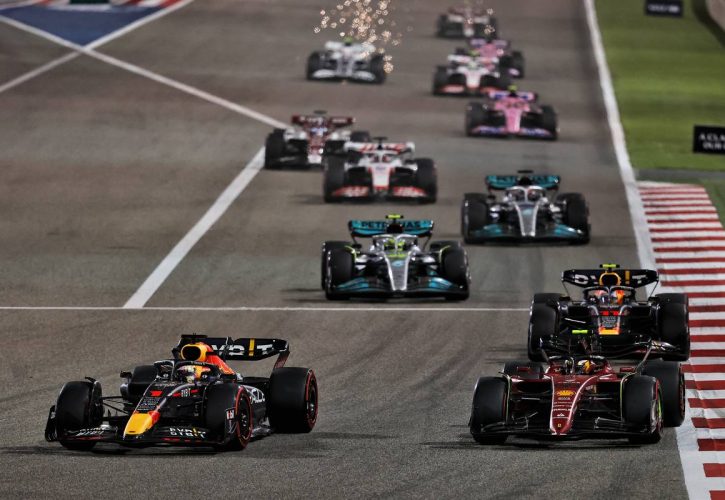
F1 managing director Ross Brawn saw "no negatives" last weekend in Bahrain where the sport's new-generation designs enjoyed their first race, proving that Grand Prix racing has moved on from its previous "horrible" cars.
Wholesale changes to F1's technical regulations have ushered in a new era that got underway at Sakhir.
Sunday's race saw several tight battles up and down the field, including an epic fight between race winner Charles Leclerc and Max Verstappen, that showcased the merits of F1's new regulations.
"It's a sample base of one, but we've seen no negatives, which is a great thing," Brawn told the media after Sunday's opening round of racing.
"I think now, once the drivers have debriefed, and the FIA start to look at all the data, we'll see how far we've moved.
"But the old cars were horrible, so we have been able to make that step. I think we have shown that the raceability of the car has to be a strong consideration going forward.
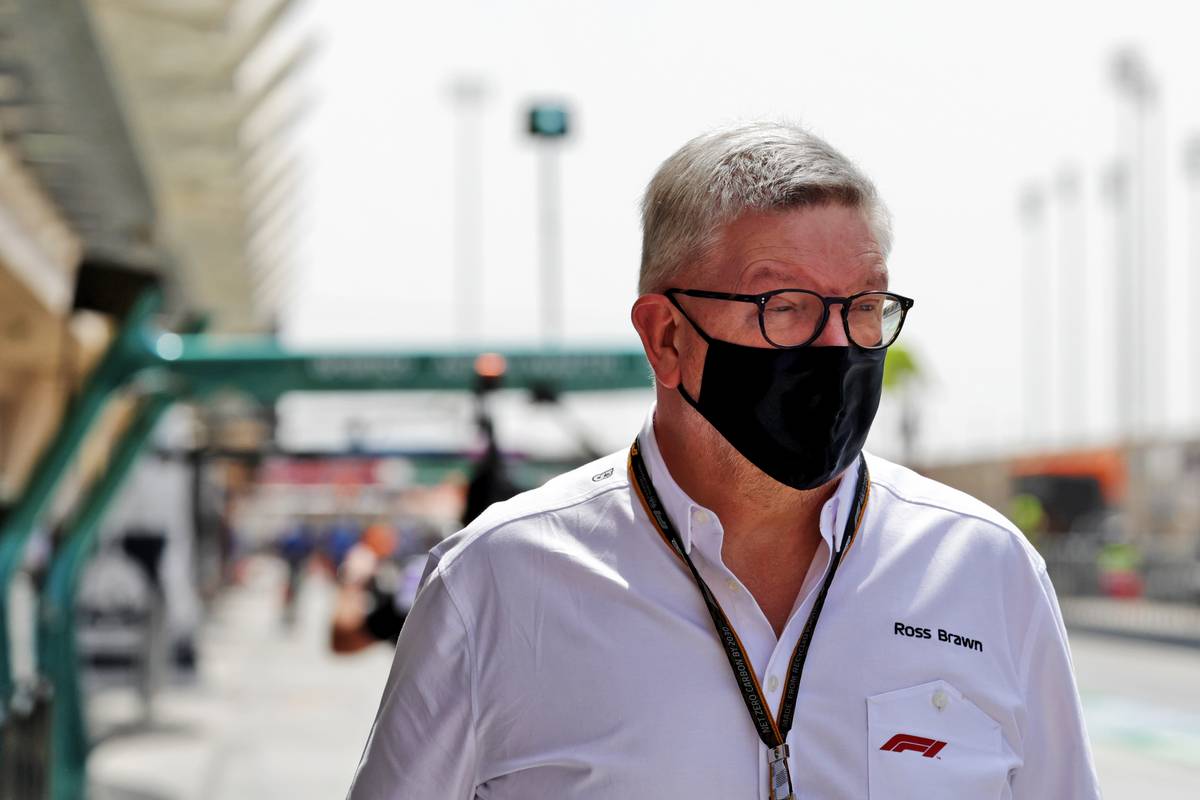
The working group at Formula 1 that devised the new regulations now works under the umbrella of the FIA and its dedicated technical department which now has access to all the relevant data that will allow it to continue to understand and develop F1's current design concept.
"I think we will digest all the data and all the information and we will get the feedback from the teams and the drivers," added Brawn.
"I have always said that this is a process and this is not a one-stop solution, so we need to continue the process.
"The team that have designed this car have now moved to the FIA so that team legitimately has access to all the car data. They can look at all the car data and see what needs to be improved and how we move forward.
"If we can keep this process up and if we can add raceability to the priorities of new cars in the future, then I think it is very much the right move."
- Read also: Team Talk - Sunday in Sakhir
Save for McLaren who suffered a dismal first race in Bahrain, the front-runners at Sakhir included the usual suspects, but the complexion of F1's mid-field has changed, with Haas and Alfa Romeo now racing among the top ten.
"Obviously new regulations, it looks to me like two or three teams have not got it right," commented Brawn. "But it wasn't that bad.
"As always if we can get two or three teams at the front racing hard, a strong midfield, then I think we should be pleased. And if those cars can race, that's the key thing.
"You can't forget the impact the cost cap is going to have, because no-one out there at the minute is going to be able to put another $100 million into their programme to solve their problems.
"So that is going to have a flatter development rate, so nobody is going to pull away. I think a lot of things have come together so we can look forward to having a great year."
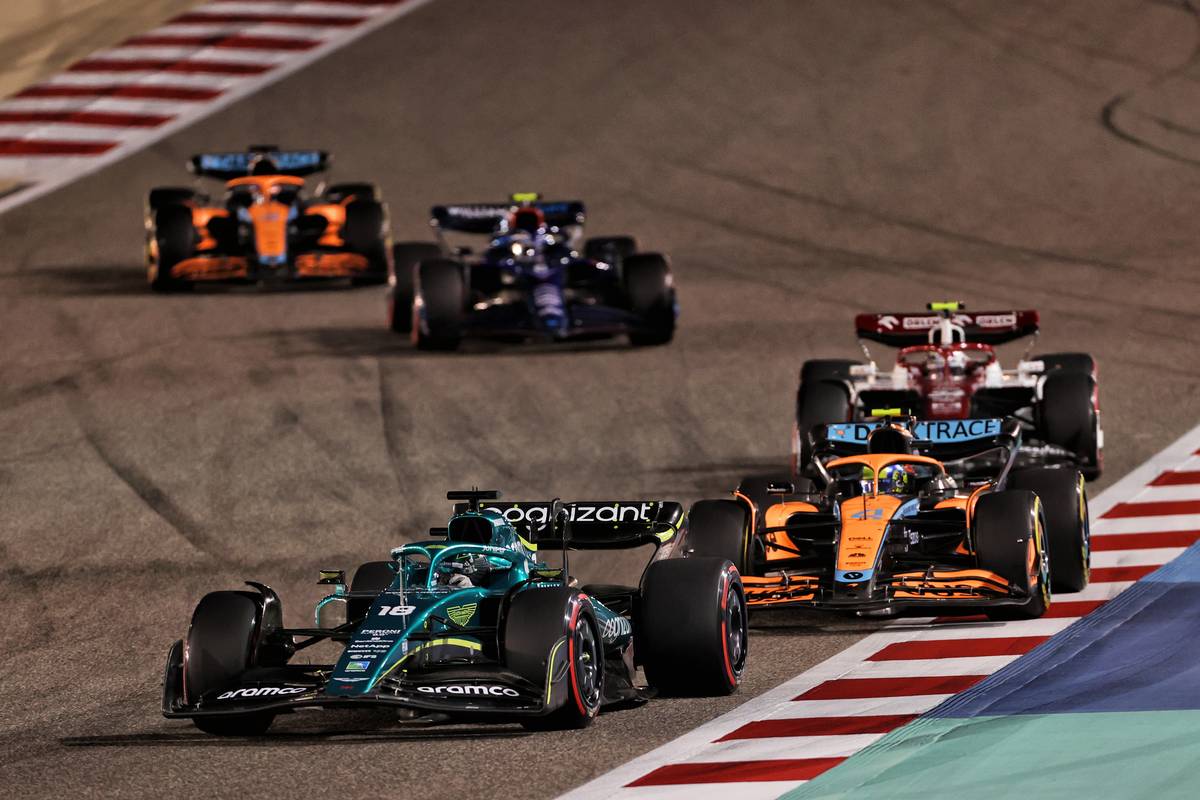
Sitting alongside Brawn in Sunday evening's presser, F1 CEO Stefano Domenicali was equally encouraged by the spectacle he saw on the track in Bahrain, noting how strategy calls up and down the field had spiced up the show.
"First of all, I don't think we can underestimate the great work that Pirelli have done," said the Italian.
"The tyres have always been under a bigger spotlight, and we saw the different typology give a different element to the show, and different strategy. Some did it right; some did it wrong – this is part of the game!
"We've also seen the quality of the promoter, the energy we wanted to bring. From a commercial point of view, a lot of companies have invested with us.
"We can see how many new brands are coming into Formula 1 and the business is in good health. The signals are encouraging and F1 is in great shape.
"There was a great fight on the track, very correct by all the drivers, and this is a good sign for the first race.
"To see Ferrari back again, being competitive, is very good for everyone. I'm sure this will have an impact on the number of ticket sales the promoter will sell. I'm expecting, in Imola, a big crowd like the old days."
Keep up to date with all the F1 news via Facebook and Twitter




